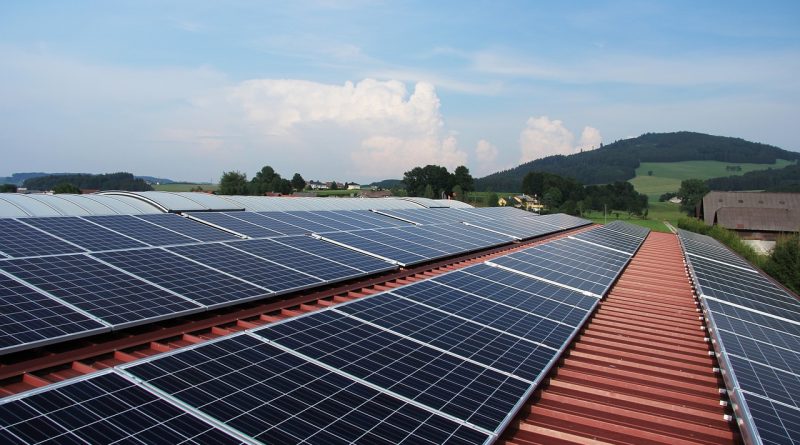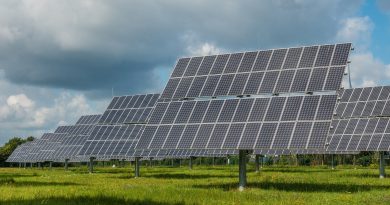Aims and Objectives of Solar Home Systems
Aims and Objectives of a Solar Home System
In recent years, there has been a growing interest in renewable energy sources as the world seeks to transition to a more sustainable future. One of the most popular and widely adopted forms of renewable energy is solar power. Solar home systems have gained popularity, especially in areas where access to electricity is limited or unreliable. These systems have specific aims and objectives that make them an attractive solution for meeting the energy needs of households. This blog will delve into the aims and objectives of a solar home system and explore how it helps promote a more sustainable and energy-efficient future.
1. Access to Clean and Reliable Energy
One of the primary aims of a solar home system is to provide households with access to clean and reliable energy. In many parts of the world, especially in rural areas, electricity grids are either nonexistent or prone to frequent blackouts. Solar home systems come as a solution to this problem by harnessing the abundant and renewable energy from the sun. With solar panels installed on their roofs, homeowners can generate electricity for their homes, completely eliminating reliance on traditional sources of energy such as fossil fuels.
2. Reduction of Environmental Impact
Another crucial objective of a solar home system is to minimize the environmental impact associated with traditional energy sources. Fossil fuels, such as coal and natural gas, contribute significantly to greenhouse gas emissions, leading to climate change and air pollution. Solar power, on the other hand, is a clean and renewable energy source that produces zero emissions during the generation process. By switching to solar energy, households can reduce their carbon footprint and help mitigate the adverse effects of climate change.
3. Cost Saving and Financial Independence
Solar home systems aim to provide households with long-term cost savings and financial independence. While the initial investment for installing solar panels may seem high, the long-term benefits far outweigh the costs. Solar energy is essentially free once the system is installed, as sunlight is a limitless resource. As a result, homeowners can save significantly on their monthly electricity bills, especially in areas where electricity prices are high or subject to frequent price fluctuations. Additionally, solar home systems provide financial independence as homeowners are not reliant on utility companies for their energy needs.
4. Energy Security and Reliability
One of the main objectives of a solar home system is to provide energy security and reliability. Traditional energy infrastructure is vulnerable to disruptions caused by natural disasters, accidents, or political instability. Solar home systems, being decentralized, are less susceptible to these disruptions. They allow households to have a reliable and uninterrupted source of energy even during power outages. This is particularly crucial in areas where access to electricity is crucial for essential services such as healthcare and education.
5. Empowering Rural Communities
Solar home systems aim to empower rural communities by providing access to electricity, enabling socio-economic development, and improving quality of life. In many developing countries, electrification rates in rural areas are significantly lower than in urban areas. This lack of access limits educational opportunities, healthcare services, and economic development. By implementing solar home systems, rural communities can overcome these barriers and bridge the gap between urban and rural areas, thus fostering inclusive growth and development.
Conclusion
Empower your home and community with SolarClue®’s solar home systems. Experience sustainable electricity, cost savings, and environmental benefits. Our systems are designed to meet diverse household needs, promoting energy access in off-grid and rural areas. Governments often incentivize adoption—check for available rebates or subsidies. SolarClue® guides you through the process, ensuring tailored solutions for your unique requirements. Join the solar revolution, reduce your carbon footprint, and enjoy the advantages of clean energy. Take the first step toward a brighter and sustainable future. Contact SolarClue® today, and let’s illuminate homes while transforming lives with solar home systems!
Frequently Asked Questions
The primary aim is to provide sustainable and reliable access to electricity, especially in off-grid and rural areas.
By harnessing solar energy, these systems reduce reliance on non-renewable sources, minimizing environmental impact.
Yes, they can supplement grid power and contribute to a more sustainable energy mix.
Yes, one objective is to decrease energy-related costs by utilizing free solar energy, leading to long-term financial savings.
Yes, by enabling electrification in rural areas, these systems foster economic development and improve living standards.
Government incentives, rebates, or subsidies may be available to encourage the adoption of solar home systems.
They provide a sustainable and independent power source, reducing vulnerability to energy shortages.
Yes, systems can be designed to meet the specific energy needs of households, whether small or large.
With proper maintenance, solar home systems can have a lifespan of 20-25 years. Regular checks ensure optimal performance.
By electrifying homes, these systems empower communities, supporting education, healthcare, and overall well-being.



